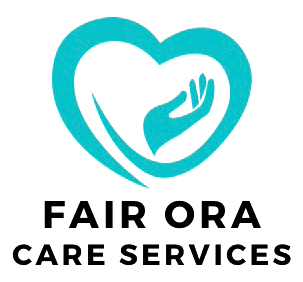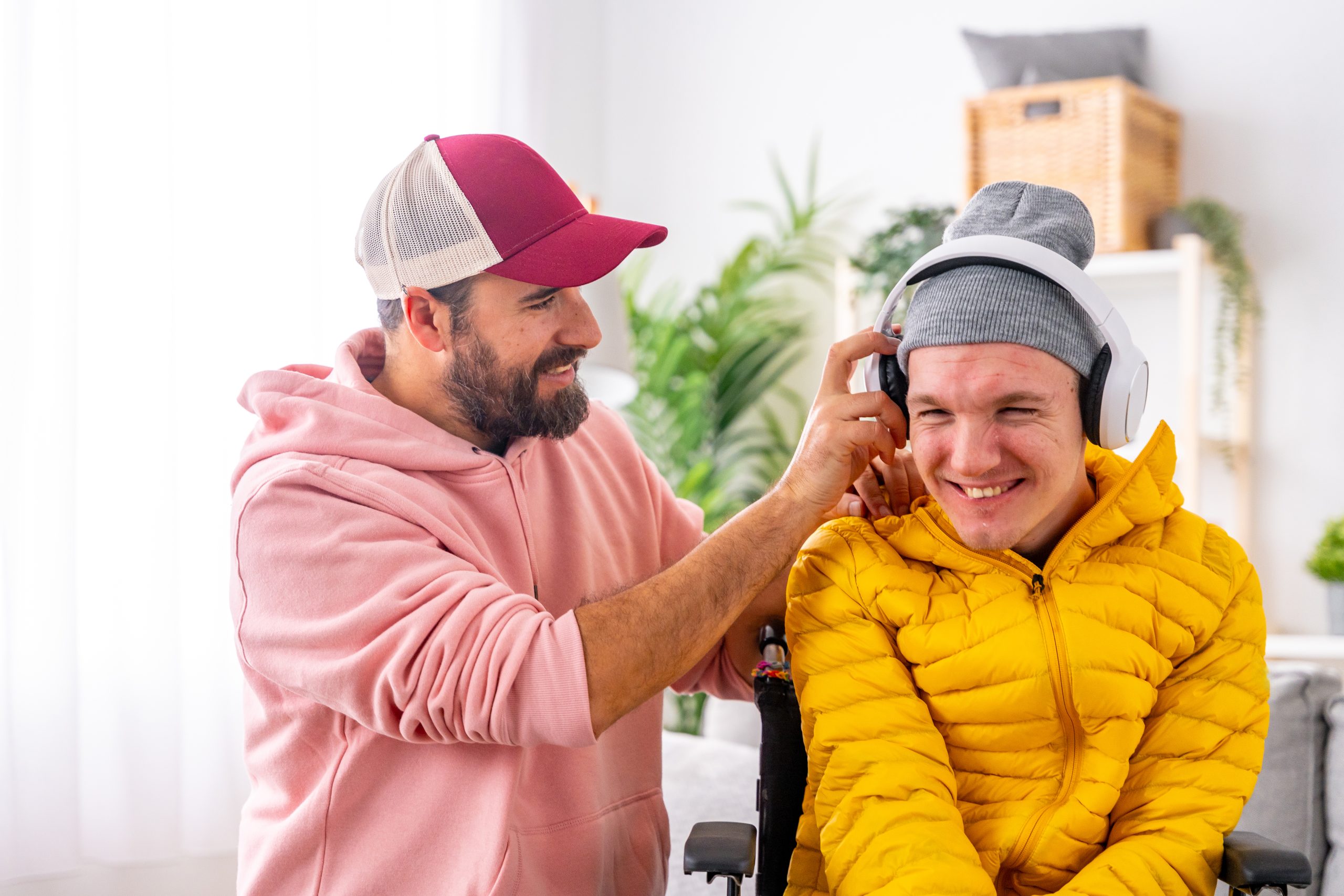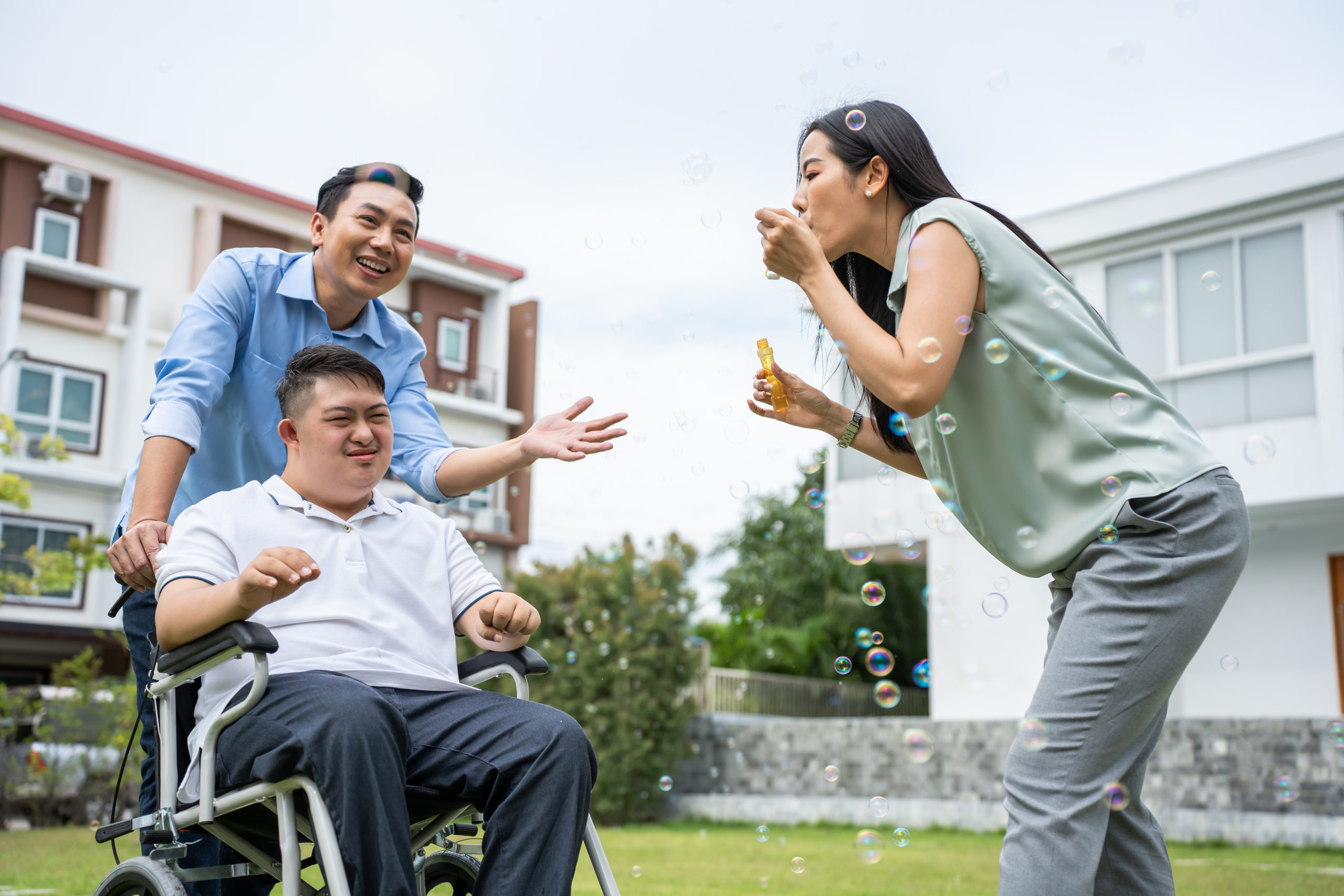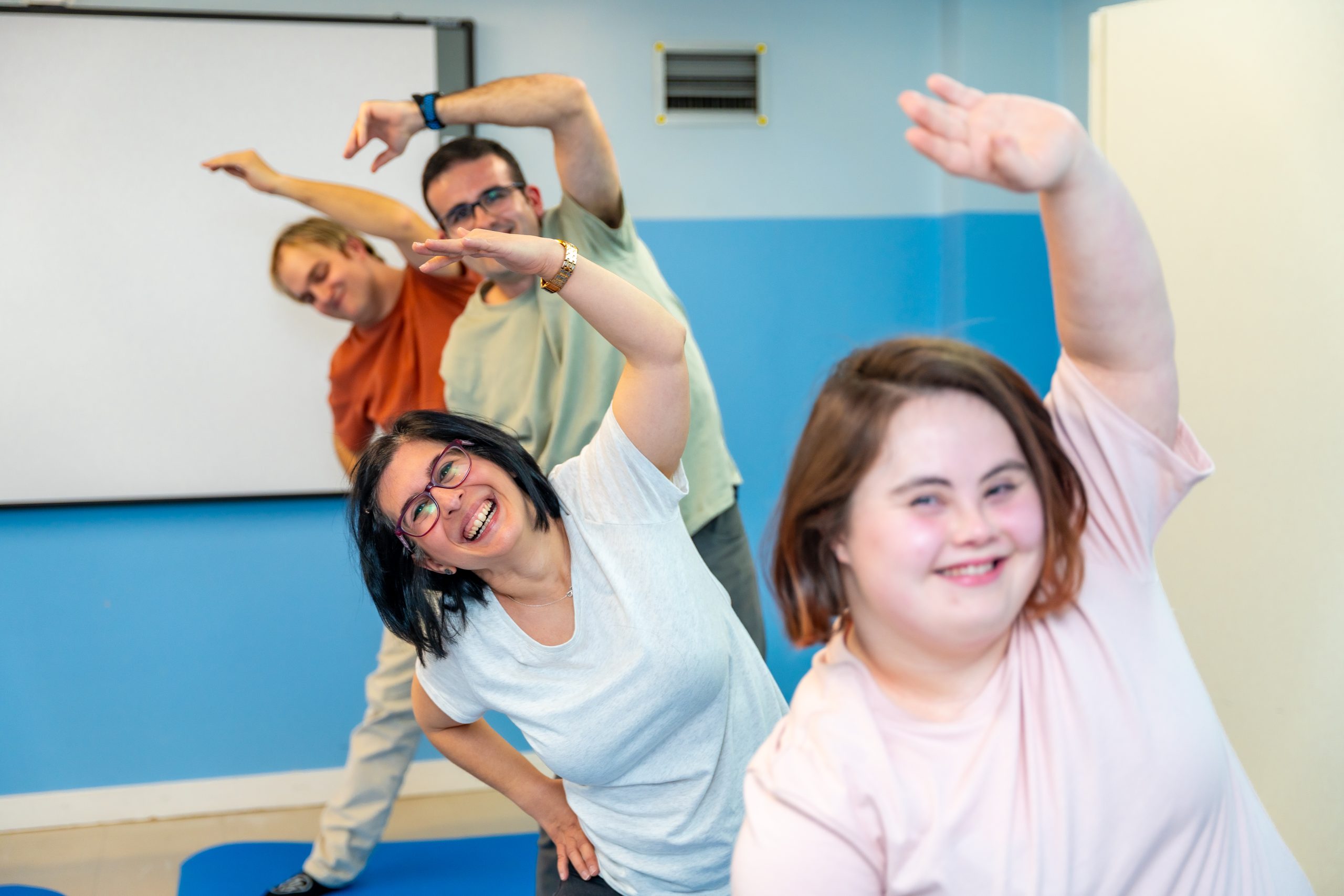Introduction
What does it mean to truly live your life on your own terms? For most of us, self-determination—the ability to make our own choices and direct our own lives—is a fundamental aspect of personal dignity and fulfilment. Yet for many people living with disabilities, this basic right has historically been overlooked or actively denied.
At Fair Ora Care Services, we believe that quality disability support isn’t just about meeting physical needs—it’s about empowering individuals to exercise genuine choice and control in their lives. When done right, support services don’t create dependency; they become the foundation upon which true self-determination can flourish.
In this article, we’ll explore how modern, quality-focused disability support services can become powerful catalysts for self-determination, independence, and personal growth. We’ll share insights from our experience at Fair Ora Care Services and highlight approaches that truly make a difference in the lives of people with disabilities.
The Evolution of Disability Support: From Care to Empowerment
To understand where we are today, it’s worth briefly reflecting on how disability support has evolved over time. Not so long ago, the dominant model was one of institutionalisation and medical management, where people with disabilities were often viewed as passive recipients of care rather than active agents in their own lives.
The journey from these outdated approaches to today’s empowerment models has been significant:
| Era | Approach | Focus | Outcome |
|---|---|---|---|
| Pre-1970s | Institutional | Protection and basic needs | Segregation and dependency |
| 1980s-1990s | Community care | Integration into community | Improved living conditions, limited choice |
| 2000s-2010s | Person-centred | Individual preferences | Greater customisation of services |
| Current | Rights-based empowerment | Self-determination | Partnership and co-design of supports |
This evolution represents more than just changing terminology—it reflects a fundamental shift in understanding what constitutes quality in disability support. At Fair Ora Care Services, we embrace the most progressive approach, viewing our role not as “carers” but as enablers and partners in each participant’s journey toward self-determination.
Understanding Self-Determination: More Than Just Making Choices
Self-determination goes beyond simply having choices. It encompasses several interconnected elements that contribute to a person feeling in control of their own life:
- Autonomy: The ability to act based on one’s own preferences and values
- Competence: Having the skills and knowledge to achieve desired outcomes
- Relatedness: Connecting meaningfully with others while maintaining independence
- Psychological empowerment: Believing in one’s capacity to influence important outcomes
- Self-realisation: Understanding one’s strengths, limitations, and potential
For people with disabilities, developing these aspects of self-determination often requires thoughtful support that addresses both practical needs and deeper psychological factors. Quality support services recognise that self-determination is a skill that can be cultivated and strengthened over time with the right approach.
How Fair Ora Promotes Self-Determination Through Quality Support
At Fair Ora Care Services, promoting self-determination isn’t just an abstract goal—it’s woven into the fabric of everything we do. Here’s how we approach this vital aspect of support:
1. Starting with Genuine Choice
Self-determination begins with having real options. We ensure participants have:
- Informed choice: Providing comprehensive information about available options in accessible formats
- Meaningful alternatives: Offering genuinely different options, not just superficial variations
- Respect for decisions: Honouring choices even when they differ from what staff might prefer
- Opportunity for revision: Recognising that preferences can change over time
“The most basic freedom is not about what you can do—it’s about what you can choose.”
This approach extends to all aspects of our service delivery, from major life decisions to day-to-day preferences about meals, activities, and personal routines.
2. Building Skills for Independence
Self-determination requires having the capabilities to act on one’s choices. Our skill-building approach includes:
- Individualised skill assessment: Identifying existing strengths and areas for development
- Tailored learning strategies: Adapting teaching methods to each person’s learning style
- Graduated support: Providing just enough assistance to ensure success while encouraging independence
- Real-world practice: Creating opportunities to apply skills in meaningful contexts
For example, rather than simply transporting a participant to appointments, we might develop a stepped plan to teach public transport navigation skills, gradually reducing support as confidence grows.
3. Creating Opportunities for Decision-Making
Practice is essential for developing decision-making confidence. We deliberately create opportunities for participants to:
- Make daily decisions about routines, meals, and activities
- Participate in planning meetings and goal-setting
- Provide feedback on services and suggest improvements
- Experience the natural consequences of decisions (within safe boundaries)
- Reflect on decision outcomes and learn from experiences
These opportunities start small and grow in significance as confidence develops. Even participants with complex communication needs are supported to express preferences and make choices using appropriate communication supports.
4. Balancing Risk and Autonomy
Perhaps one of the most challenging aspects of promoting self-determination is finding the right balance between safety and autonomy. At Fair Ora Care Services, we approach this balance through:
- Positive risk assessment: Evaluating both the potential benefits and potential harms of different choices
- Dignity of risk: Recognising that the right to make mistakes is a vital part of human dignity
- Supported decision-making: Providing appropriate guidance without taking over
- Ongoing dialogue: Continually discussing and adjusting the balance as circumstances change
We believe that managing risk should enable participation rather than restrict it. This means working collaboratively to find ways to make desired activities possible rather than defaulting to prohibition when challenges arise.
5. Building Natural Support Networks
True self-determination extends beyond the service environment. We actively work to help participants develop:
- Community connections: Facilitating meaningful involvement in community activities
- Reciprocal relationships: Supporting opportunities to contribute, not just receive help
- Family partnerships: Working with families to promote consistent approaches to independence
- Advocacy skills: Building capacity to speak up for oneself in various contexts
These natural supports create a sustainable foundation for self-determination that doesn’t depend solely on formal services.
The Impact of Self-Determination: Stories of Transformation
Note: The following examples are composite stories based on real experiences, with details changed to protect privacy.
Amelia’s Housing Journey
Amelia, a participant with an intellectual disability, had always lived in accommodation arranged by others. When she expressed interest in having her own apartment, some family members were concerned about her safety.
Working with Fair Ora Care Services, Amelia developed a staged plan to build her independent living skills while exploring housing options. We supported her to:
- Visit different housing types to clarify her preferences
- Practice household management skills in a structured environment
- Gradually increase time spent self-managing aspects of her care
- Address specific safety concerns with targeted strategies
Today, Amelia lives in her own apartment with flexible supports that she schedules according to her needs. She describes the change as “finally feeling like an adult.”
David’s Communication Breakthrough
David uses a communication device due to cerebral palsy affecting his speech. For years, he used a basic system with limited options, often having others speak for him in appointments and planning meetings.
Our speech pathologist worked with David to implement a more sophisticated communication system and build his confidence in using it. The results were transformative:
- David now leads his own planning meetings
- He provides detailed feedback about his preferences for support
- He has developed new relationships based on deeper communication
- He recently gave a presentation to new staff about effective communication support
“People used to talk about me as if I wasn’t there,” David shares through his device. “Now they talk with me, and that makes all the difference.”
The Community Garden Initiative
A group of participants expressed interest in gardening but had limited opportunities. Rather than creating a segregated program, we supported them to join an existing community garden.
Initially, this involved substantial support with transportation, social interaction, and gardening tasks. Over time, our role shifted to background support as:
- Participants developed relationships with other garden members
- They took on specific responsibilities within the garden
- The garden committee made accessibility improvements
- Natural supports emerged within the community setting
What began as a supported activity has become a genuine community connection, with participants now fully integrated members of the garden committee and social network.
These stories highlight an important truth: when quality support focuses on empowerment rather than just care, the results extend far beyond physical wellbeing to encompass genuine life satisfaction and community belonging.
Challenges and Solutions in Promoting Self-Determination
While the benefits of empowerment-focused support are clear, implementing this approach isn’t without challenges. Here are some common obstacles and how quality service providers address them:
Challenge: Risk Aversion in Support Systems
Many disability support systems have evolved with a strong emphasis on risk management, sometimes at the expense of autonomy.
Solutions:
- Developing sophisticated, person-centred risk assessment approaches
- Training staff in supported decision-making techniques
- Documenting both benefits and risks when evaluating choices
- Advocating for systemic changes that value autonomy alongside safety
Challenge: Limited Expectations
People with disabilities often face low expectations from others, including sometimes from support staff.
Solutions:
- Highlighting success stories and role models
- Providing exposure to new possibilities and experiences
- Using strength-based assessment approaches
- Creating a culture that celebrates achievement and growth
Challenge: Skill Gaps
Some participants may lack skills needed for self-determination due to limited previous opportunities.
Solutions:
- Investing in comprehensive skill development programs
- Breaking complex skills into manageable components
- Using varied teaching methods to accommodate different learning styles
- Creating safe opportunities for practice and learning from mistakes
Challenge: Complex Support Needs
For participants with complex disabilities, self-determination might seem more challenging to facilitate.
Solutions:
- Focusing on communication as a foundation for choice
- Finding creative ways to offer control even within necessary care routines
- Using technology to enhance independence where appropriate
- Recognising that all people, regardless of disability, can express preferences
At Fair Ora Care Services, we see these challenges not as barriers but as opportunities for innovation and growth in our service approach.
The Role of Quality Standards in Promoting Self-Determination
Australia’s disability services operate under the NDIS Quality and Safeguarding Framework, which explicitly recognises choice and control as central to quality support. At Fair Ora Care Services, we embrace these standards as a minimum baseline, continually striving to exceed them in our empowerment approach.
Key quality indicators that support self-determination include:
- Person-centred planning processes that genuinely reflect individual preferences
- Accessible complaints mechanisms that demonstrate responsiveness to feedback
- Staff training that emphasises empowerment and supported decision-making
- Service flexibility that adapts to individual routines and preferences
- Outcome measurement that includes subjective wellbeing and self-determination metrics
These quality measures aren’t just regulatory requirements—they’re vital tools for ensuring services truly contribute to participants’ autonomy and life satisfaction.
Future Directions: Emerging Approaches to Empowerment
The field of disability support continues to evolve, with exciting developments that promise to further enhance self-determination:
Co-Design and Co-Production
Increasingly, people with disabilities are involved not just in choosing between existing service options but in designing new approaches. At Fair Ora Care Services, we’re exploring ways to incorporate participant input into service design, staff training, and quality measurement.
Technology for Independence
Technological innovations—from smart home systems to sophisticated communication devices—are creating new possibilities for independence. We stay informed about these developments and help participants access technologies that align with their empowerment goals.
Peer Support Models
The value of learning from others with shared experiences is increasingly recognised. We’re developing opportunities for peer mentoring and support groups that complement formal services with the unique insights that come from lived experience.
Conclusion: The Path Forward
Empowerment through quality support represents the future of disability services—a future where support enhances rather than diminishes autonomy, where people with disabilities are recognised as the experts in their own lives, and where services are judged by how well they promote self-determination.
At Fair Ora Care Services, this future isn’t just an aspiration—it’s the foundation of our daily work. We believe that:
- Every person has the right to make meaningful choices about their life
- With the right support, people with disabilities can achieve goals that might once have seemed impossible
- True quality in disability support is measured by how well it enhances self-determination
If you or someone you care about could benefit from our empowerment-focused approach to disability support, we invite you to contact Fair Ora Care Services. Together, we can explore what self-determination means to you and develop support strategies that help you achieve your unique vision of a fulfilling life.
At Fair Ora Care Services, we don’t just provide support—we empower individuals to live life on their own terms, with dignity, respect, and genuine choice.
Fair Ora Care Services is a disability service provider based in Brisbane, Queensland, offering a range of NDIS-registered supports including assistance with daily personal activities, development of daily living and life skills, community participation support, and more. We are committed to making a difference in the lives of people with disabilities by making life easier, fairer, and more involved through participation within their communities.



